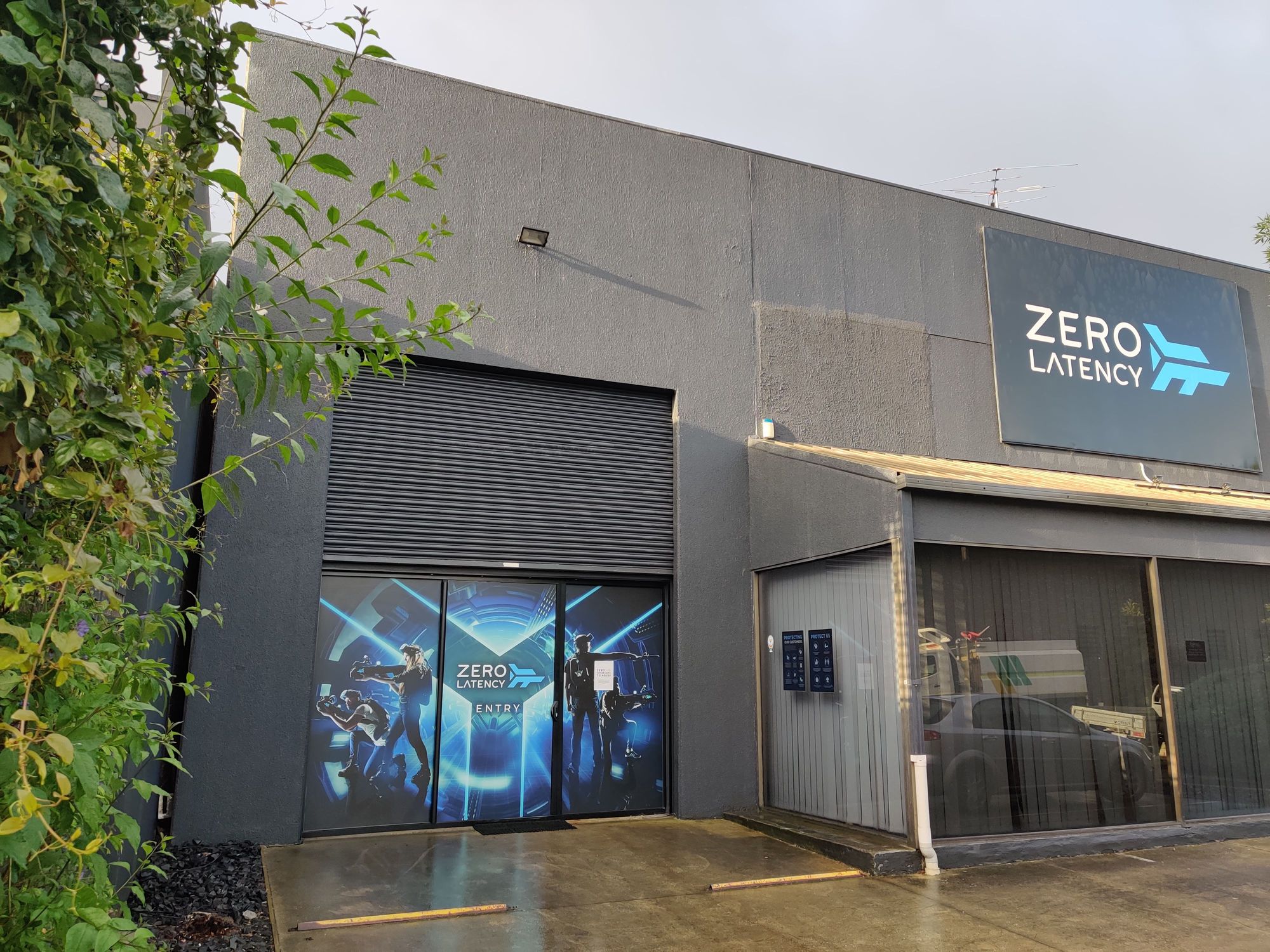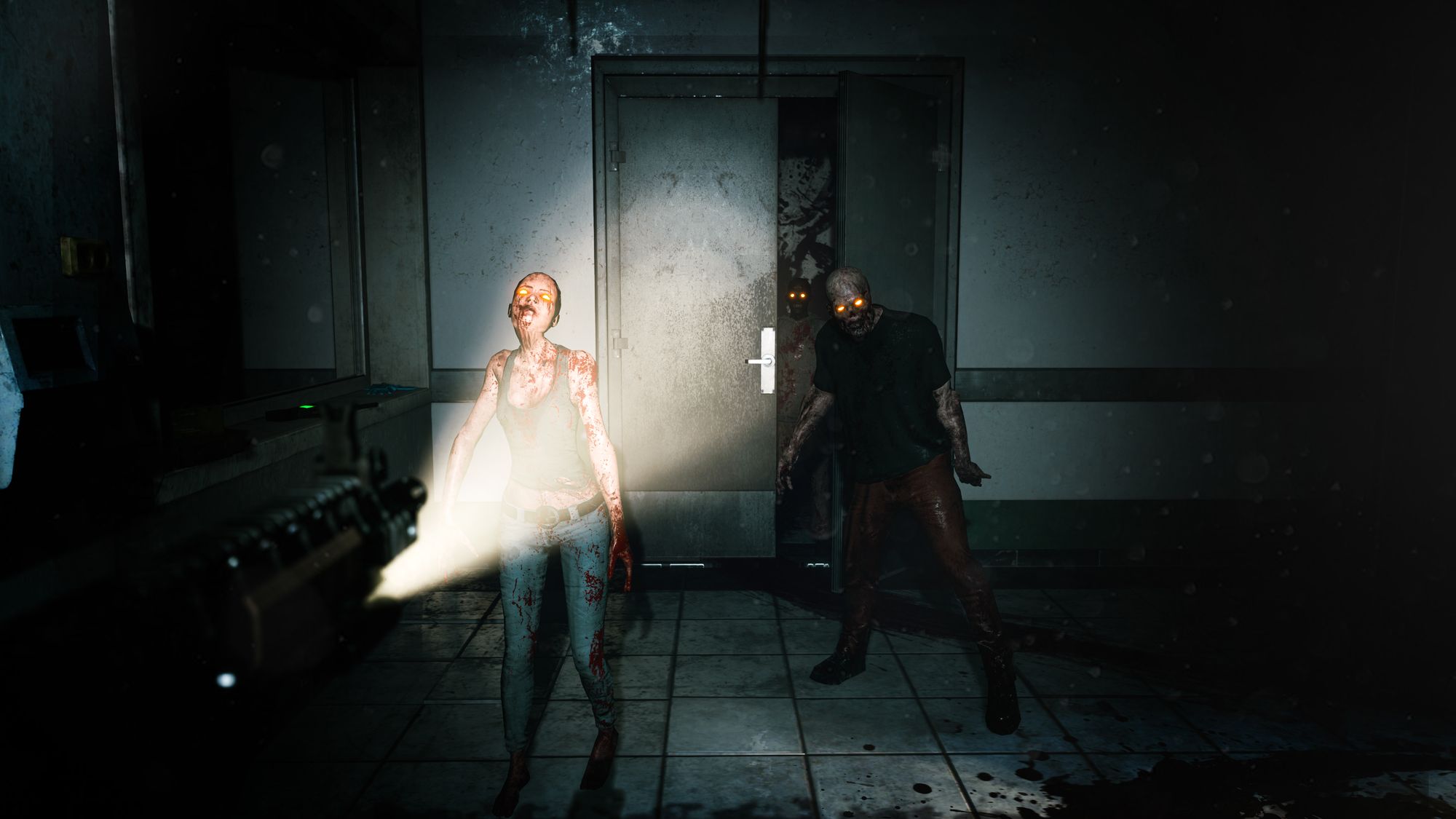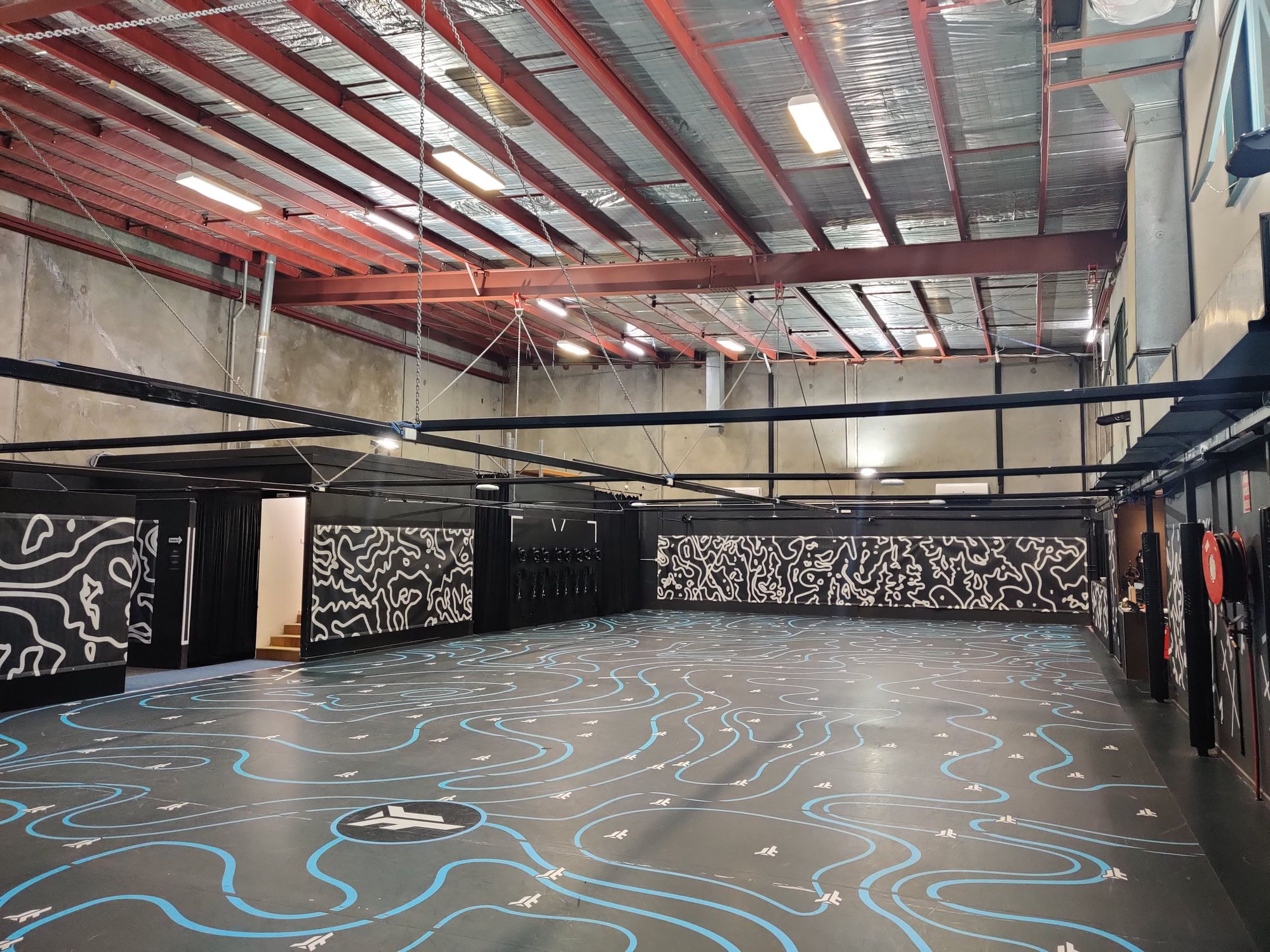Outbreak: A VR Zombie Killing Joyride
Open-space VR could be the wave of the future

When the opportunity came up a couple of weeks ago to attend the launch event of Zero Latency's latest VR experience, Outbreak, on SUPERJUMP's behalf, I was incredibly excited to try it out. Boy, I was not disappointed.
If you're not familiar with Zero Latency's story, they are an Australian-based VR company that originally started up back in 2013, in Melbourne. Specialising in free-roam VR, they trade the mess of cables and narrow confines of your living room that come with traditional VR headsets, for wide open spaces where players have far more freedom of movement.
Without any annoying cables getting in your way or other cumbersome equipment (like previous iterations of Zero Latency's hardware that included backpacks), the only equipment required during the game session was the VR headset itself, along with the gun controller which we aimed and fired, which provided direct input on our movements during the game.

I'll admit that I'm not exactly a VR expert, and in the past, I've only ever played a handful of VR games a couple of times at a mate's house, which were pretty basic titles like Beat Saber and Tetris. Sure they were fun to play, and entertaining, but they don't fully leverage the power and potential of VR. This meant that going to the launch of Outbreak, I didn't really know what to expect, particularly with the free-roam aspect. I was truly going in with a fresh set of eyes.
After walking into the building and being warmly greeted by members of the Zero Latency team, I walked around while also chatting with some of the other media members and guests who were present for the game launch. I then decided to bravely put my hand up to take on some zombies in the second game session of the night, as I didn't want to wait any longer to try it out. After all, that was the reason everyone was there.
As soon as I and the seven others in my game loaded into Outbreak, I immediately felt a sense of immersion that I'd never experienced before with a game. Not only was the visual aspect powerful but also the auditory too. The entire cornerstone of virtual reality is immersion, so it may seem like I'm just stating the obvious here, but my experience playing Outbreak was on another level entirely.

I was immediately locked in as we loaded into the opening level, with the 8 players (separated into 2 groups of 4 for different parts of the game), wandering through a lab housing the only known cure for a zombie virus that has swept across the world. As we progressed through the different levels of the game, Outbreak showcased some different environments ranging from the laboratory, to the top of a building, a moving helicopter, city streets, and inside a sports stadium, among many more.
One of the most jarring moments that really spoke to how immersed we all were was when a section of one level required us to walk down into the sewers. I reflexively ducked to get under a doorway, even though we were all moving through the exact same physical space. Likewise, another part of the game required us players to walk across a vent on the outside of a skyscraper, with an extremely large drop below us. I'm normally not bad with heights but I still couldn't stop my brain from naturally starting to focus more on staying balanced and walking steadily.
When it came to the game experience itself, if you looked at it cynically you could point out some areas that need improvement, such as a lack of depth in the story, very linear progression, and pretty basic combat and enemy types. At the moment, I would definitely classify it as more of an elevated arcade experience, rather than a direct rival/potential replacement of traditional gaming. I see this as a strength, however, and the experience was incredibly entertaining. It's also easy to predict its prevalence and popularity will only grow alongside the development in the technology, so in another 5-10 years it could quite easily rival the normal gaming experience.

Other areas that I'm sure will grow or change in the future are the ways you can cooperate and interact with the other players in your session. For the most part, rather than cooperation or coordination, a lot of the session involved chaos, with the players (myself included) screaming over the mics attached to our headsets.
It's not like the game required much coordination with the players, but this is an easy way that such an experience can be elevated in the future. And if there's any way to help further the immersion of the medium, it's to incorporate those elements of collaboration between the players.
Ultimately, I had an absolutely amazing time at the launch event for Outbreak, and I recommend anyone looking for 30 minutes of intense, immersive fun to try it out at one of Zero Latency's many locations across Australia and around the globe.
Oh, and now is also a good time to mention that I top-scored during my game session - guess I was put on this earth to be a qualified zombie killer.
